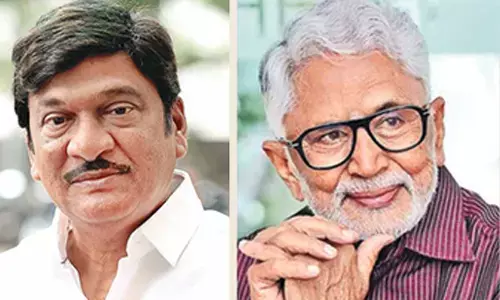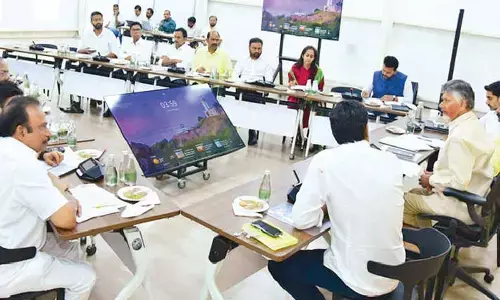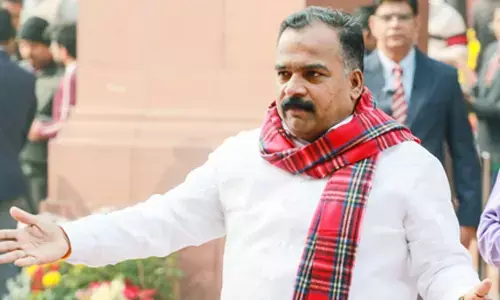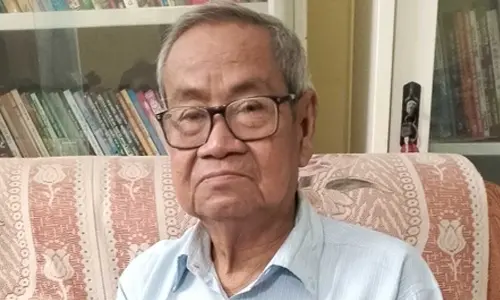33 per cent of senior women engaged in full-time or part-time employment: Study
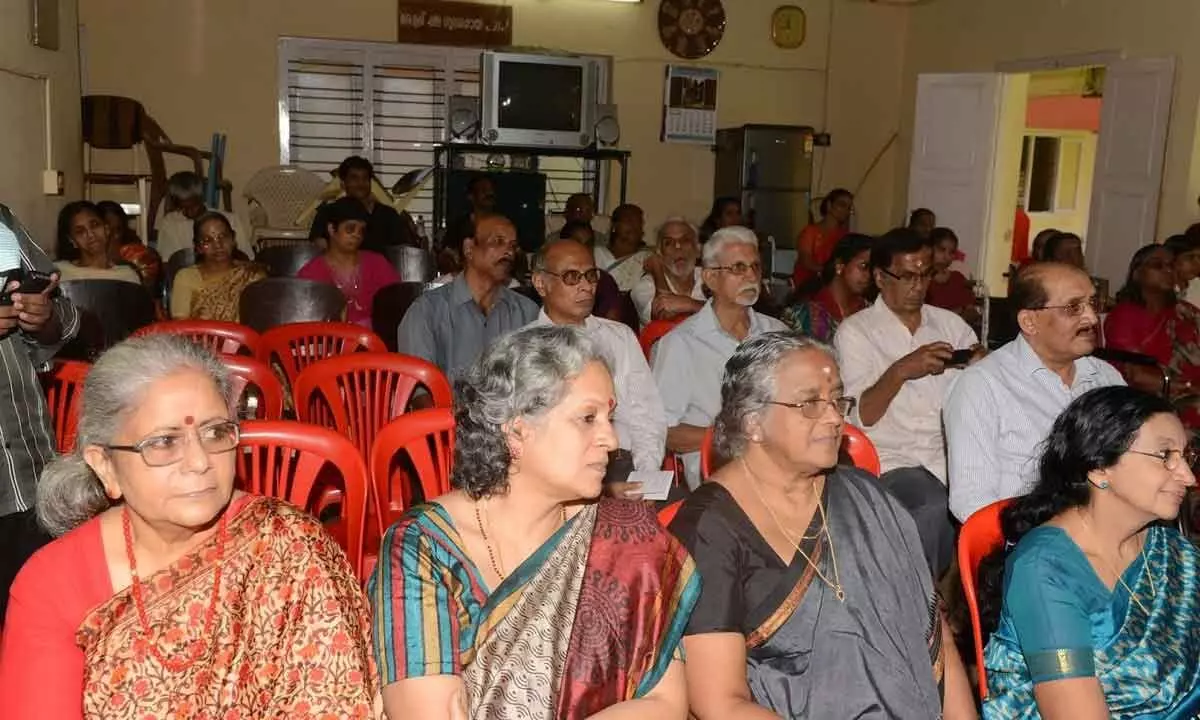
33 per cent of senior women engaged in full-time or part-time employment: Study
It’s a first of its kind all-India report with the sample size of 7,911 focusing only on older women, who are often the lost and the last in line as far as their needs and rights are concerned. In Karnataka, it included 578 elder women from Bengaluru
Bengaluru: HelpAge India, on the eve of UN recognized ‘World Elder Abuse Awareness Day’ (June 15) released its national 2023 report - “Women and Ageing: Invisible or Empowered?” at the office of The Secretary to Government, Department of Women and Child Development and Department of Empowerment of Differently Abled and Senior Citizens, on Wednesday.
The National report was released by Dr Manjula. N, The Secretary to Government, Department of Women and Child Development and Department of Empowerment of Differently Abled & Senior Citizens.
A first of its kind report focusing only on older women, who are often the lost and the last in line, where their needs and rights are concerned. It exploring the aspects of elder abuse and discrimination, access and ownership of older women to financial resources, employment and employability, health care, social and digital inclusion, safety and security, awareness and use of redressal mechanisms and others. The survey was conducted by a professional research agency - Ipsos Research Private Limited.
The report was spread across the length and breadth of the country covering both rural & urban India across 20 states, including Karnataka, 2 UTs and 5 metro cities, including Bengaluru, with a with a national sample size of 7911, across various socio-economic categories. The sample size in Karnataka, including Bengaluru was at 578 elder women.
The Bengaluru study reveals interesting findings, with 33 percent of senior women engaged in full-time or part-time employment. About 66 percent of older women in the metropolis do not work. About 85 percent of senior women who work say that they work in an employment-friendly atmosphere. Sixty-five percent of elder women say that they feel financially secure due to the support extended by their family and government pensions. On the issue of elderly abuse, 49 percent agree that elder abuse exists in society, even as only 16 percent of elder women in Bengaluru admit that they have suffered some form of abuse from the hands of their sons, daughters-in-law, and other relatives.
In Karnataka (barring Bengaluru), about 55 percent of elder women are engaged in some sort of employment, among the highest employment figures in the sixty- to ninety-year-old age group in India. At least 98 percent of Karnataka’s elder women (almost 100 percent) say that their workplace is pro-senior citizens and extremely supportive of them. About 58 percent of women in the state say that they feel financially secure due to support from their family members.
“It is a stark reality that women, as they become older, tend to become neglected and are often invisible. Women aged 60 plus comprise 11 per cent of the total women population (7 crore of 66 crore) in 2021 and it will become 14 per cent by 2031 (10 crore of 72 crore). The report highlights the gender inequality gap and the vulnerability elderly women face nationally. It throws up some hard facts such as 54 per cent are illiterate, 43 per cent are widowed, 16 per cent face abuse, 75 per cent do not have any savings, 66 per cent of older women don’t own assets and many feel financial insecure” says Rohit Prasad, CEO, HelpAge India.
The report revealed an alarming trend regarding abuse against older women, which seemed to be on the rise at a disturbing 16 per cent. For the first-time physical violence came out as the top form of abuse, with 50 per cent of those abused experiencing it, followed by disrespect (46 per cent) and emotional/ psychological abuse (40 per cent). The main perpetrators of abuse were the Son (40 per cent), followed by other relatives (31 per cent) which is troubling, as it denotes that the abuse extends beyond the immediate family circle, this was followed by the daughter-in-law (27 per cent).
Despite facing the abuse most older women did not report it due to ‘fear of retaliation or further abuse’ (18 per cent) being the top reason, followed by 16 per cent who seemed to have no awareness on available resources, while 13 per cent think their concerns would not be taken seriously. Around 56 per cent older women lacked awareness on redressal mechanisms available for abuse, with only 15 per cent being aware of the Maintenance and Welfare of Parents and Senior Citizens Act and 78 per cent older women are not aware of any government welfare schemes.
Their social status only further added to their woes, with 18 per cent of older women stating to have faced discrimination due to their gender, 64 per cent faced social discrimination due to their marital status i.e. widowed.A significant 48 per cent of older women have at least one chronic condition, yet 64 per cent older women have reported not having any health insurance. While the gender ratio for overall population is 948 females for 1000 males, the ratio in elderly is 1065 (more females in elderly population) which further increases with age.
Suggested measures to improve the quality of life for older women, in India, so they can live with dignity is they need raise awareness around the importance of gainful employment and undertake capacity building efforts. Promote elder friendly working environments. Raise awareness on the importance of physical and mental health amongst older women and their families. Promote, a culture of empathy, understanding and respect through educational platforms.
Implement digital training workshops for older women. Raise awareness on elder abuse and promote redressal mechanisms through door-to-door volunteers, television, radio and digital platforms. Raise awareness amongst older women regarding their rights and entitlements. Simplify procedures and processes to apply for government welfare schemes for older women.










